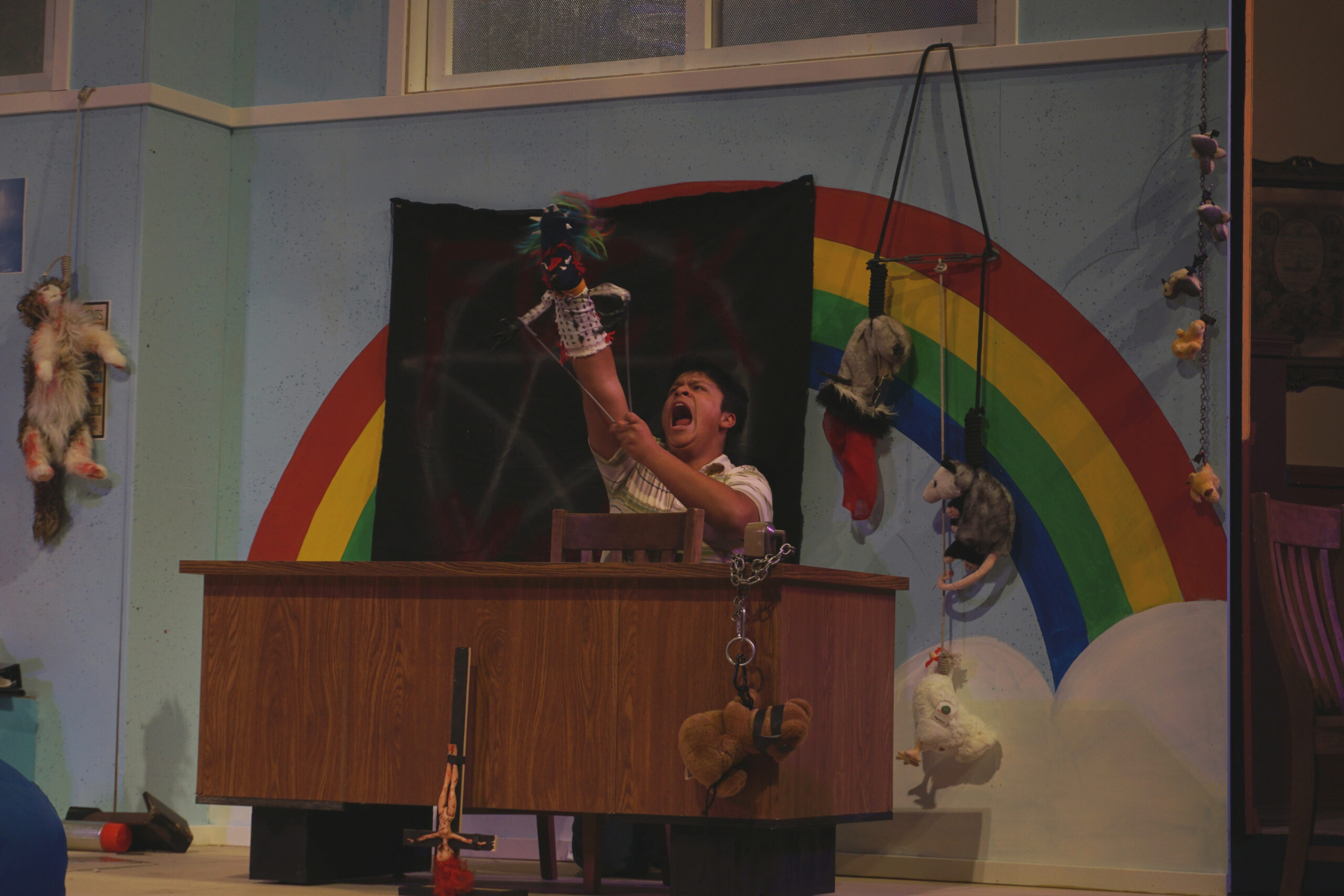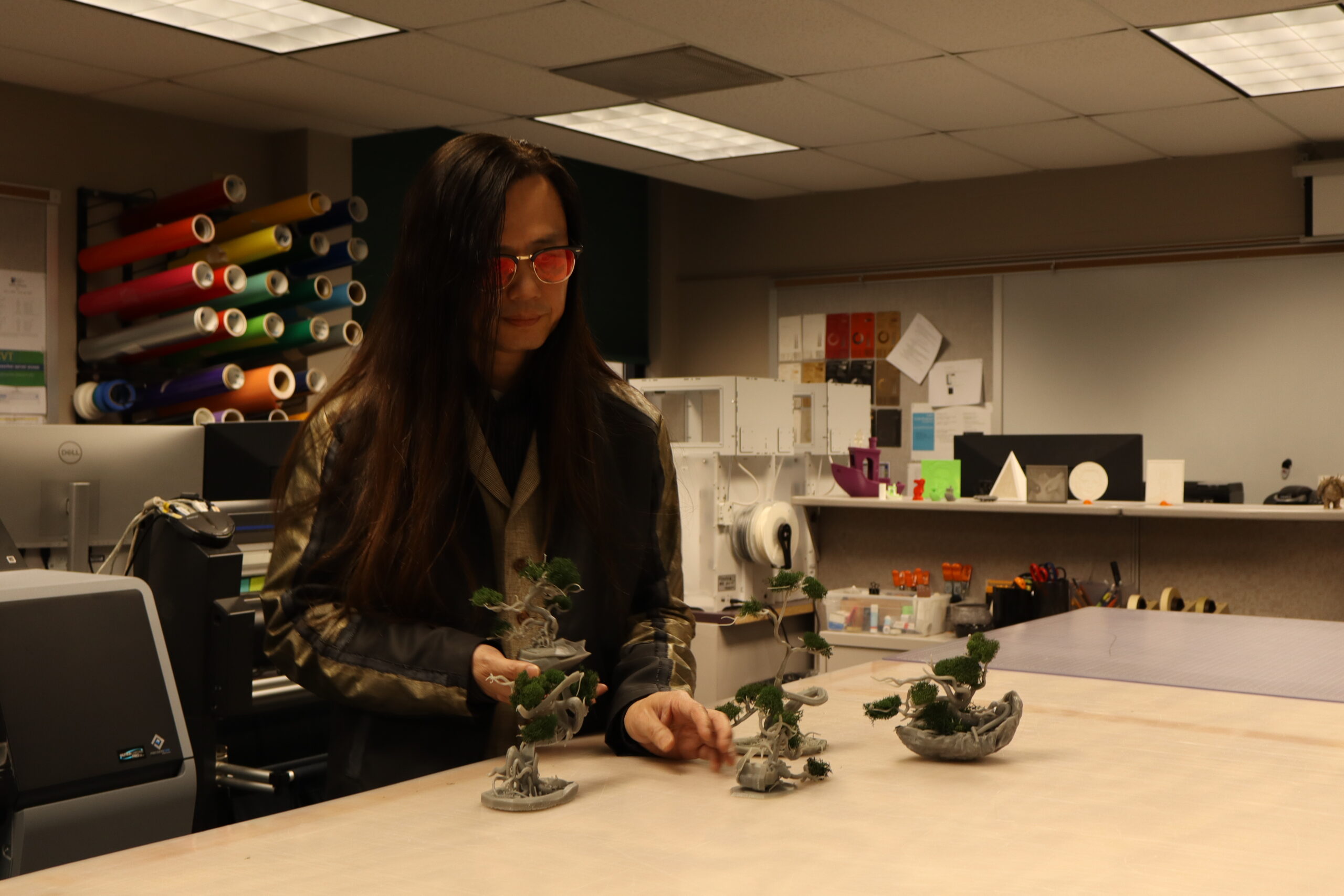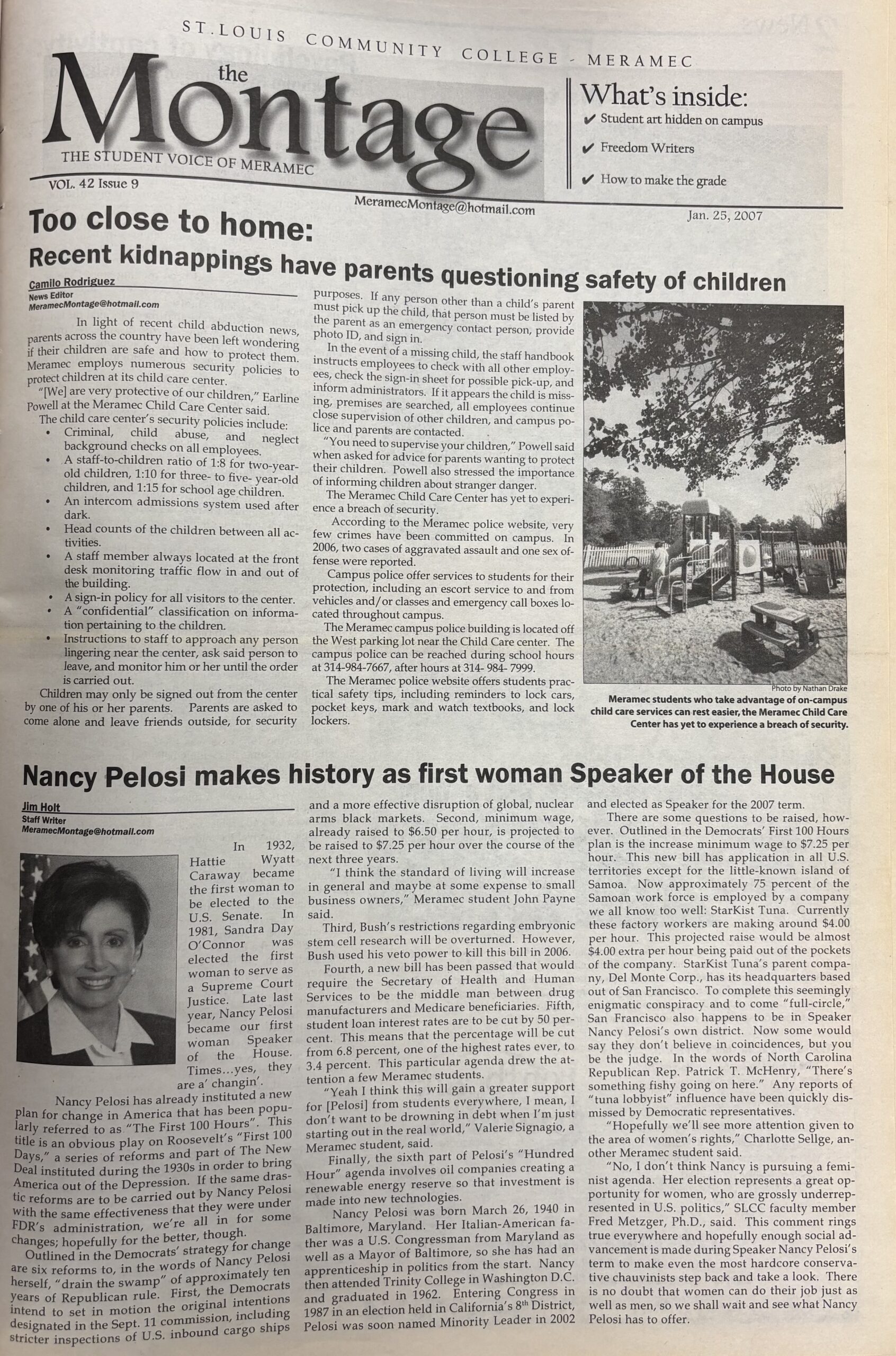A journey from production to teaching film

Kimberly Morice
-Staff Writer-
A small office filled with books, film posters, awards and a Gumby and Pokey mug sits in the back corner of Communications South’s office wing. The office belongs to STLCC-Meramec’s mass communications professor, Robert Hahn. Hahn’s background and love of film fills his office, as does his love of the little green clay man and his trusty horse companion. Hahn expressed his love of Gumby’s orange companion.
“I can relate more with Pokey, I’m more practical,” Hahn said.
When a Meramec student walks into Hahn’s classroom, they may not realize they’re in the presence of someone with a large connection to Hollywood. Some may wonder how someone goes from Hollywood to Meramec.
Hahn grew up in Philadelphia, Pa., and moved to New York to study film at Ithaca College. From there, he moved to Los Angeles with the hope of starting a successful career in the film business.
Hahn ended up as a messenger at Kaleidoscope Films where he would deliver anything from scripts to fruit salad. One of the films being shot at the time was called “War Games” and starred Matthew Broderick. Even though he was working at the studio while the film was being made, Hahn does not consider himself to have worked on the film.
“If by ‘working on’ you mean delivering a video cassette to the director’s house, then yes I did. It’s nice to be able to share things today that I helped work on when I first began my career.”
Hahn eventually moved up in the industry by working as a legal “predator”: a producer, writer and editor in Hollywood for many years, producing and directing a few documentaries for a nonprofit company he started with a friend.
“We would work for three or five months on a project and only get paid $600,” Hahn said. “We did do some interesting projects but the money just wasn’t there.”
Hahn said he had a dream during a time in his life where he was not sure what he was supposed to do. His friend Tom Laughlin, producer of the 1970’s Billy Jack series, helped him interpret the dream.
“The dream I had sort of helped point me to a new direction,” Hahn said.
Hahn decided to go back to school to get his master’s degree in cinema and photography just across the river from Meramec at Southern Illinois University at Carbondale.
“I found myself teaching at Ithaca College for six years, which is my alma mater, so I sort of came full circle.”
After teaching at Ithaca and SIUC, Hahn returned to L.A. and was quickly in need of a new job, one in which he could make more money and teach people about film. During one of his many searches for the right job, he came across an opening at Meramec.
“It had me written all over it,” Hahn said.
Hahn felt as if the description of someone to take care of a film lab, teach the filming and editing process to students would suit him perfectly.
“I was very excited, so I rushed to apply. Then I heard nothing,” Hahn said.
One year later, Hahn was living in Los Angeles and was working for the Department of Homeland Security and training as a Transportation Security Administration worker when he saw the position at Meramec was opened again.
“I thought this would be the last teaching job I would apply for, and it’s the last job I’m going to apply for a second time. Again, it had my name on it because they wanted someone to do super-8, which was me as a kid, 16mm film, which was me as a young student. They wanted someone to run an editing lab, which was me as a professional. And to teach film production and film studies, I thought that if I don’t get it then I’m not meant to be a teacher,” Hahn said.
With that shot, Hahn received a call scheduling an interview for his future teaching position. After a day of training as a TSA, he snuck past his trainers to board a flight to St. Louis for the interview that would bring him to his office where he fiddles with the Gumby handle on his mug while thinking of how to describe his average day.
“We have a real eclectic mix of students here. I teach them how to make movies and how to love them,” Hahn said.
In Hahn’s film classes, students can learn how to use everything from the classic super-8, which is the camera he grew up using, to a newer HD camera. In every class Hahn teaches, it appears he tries to point out a new way to appreciate films to every one of his students.
Hahn tries looking ahead to the end of the semester, thinking of what he will be able to give his students by the end of December.
“Grades! Hopefully ones they’ll be happy with,” Hahn said.
He stopped clicking around on his computer long enough to change his words with a more serious tone.
“It’s nice when I get a sense, and in the big classes it’s harder… when they indicate that they’re looking at movies differently now than they used to before. It’s nice to hear that. I’ve had students write that and say that they’re appreciating films in a new way.”
See Hahn’s Work:











